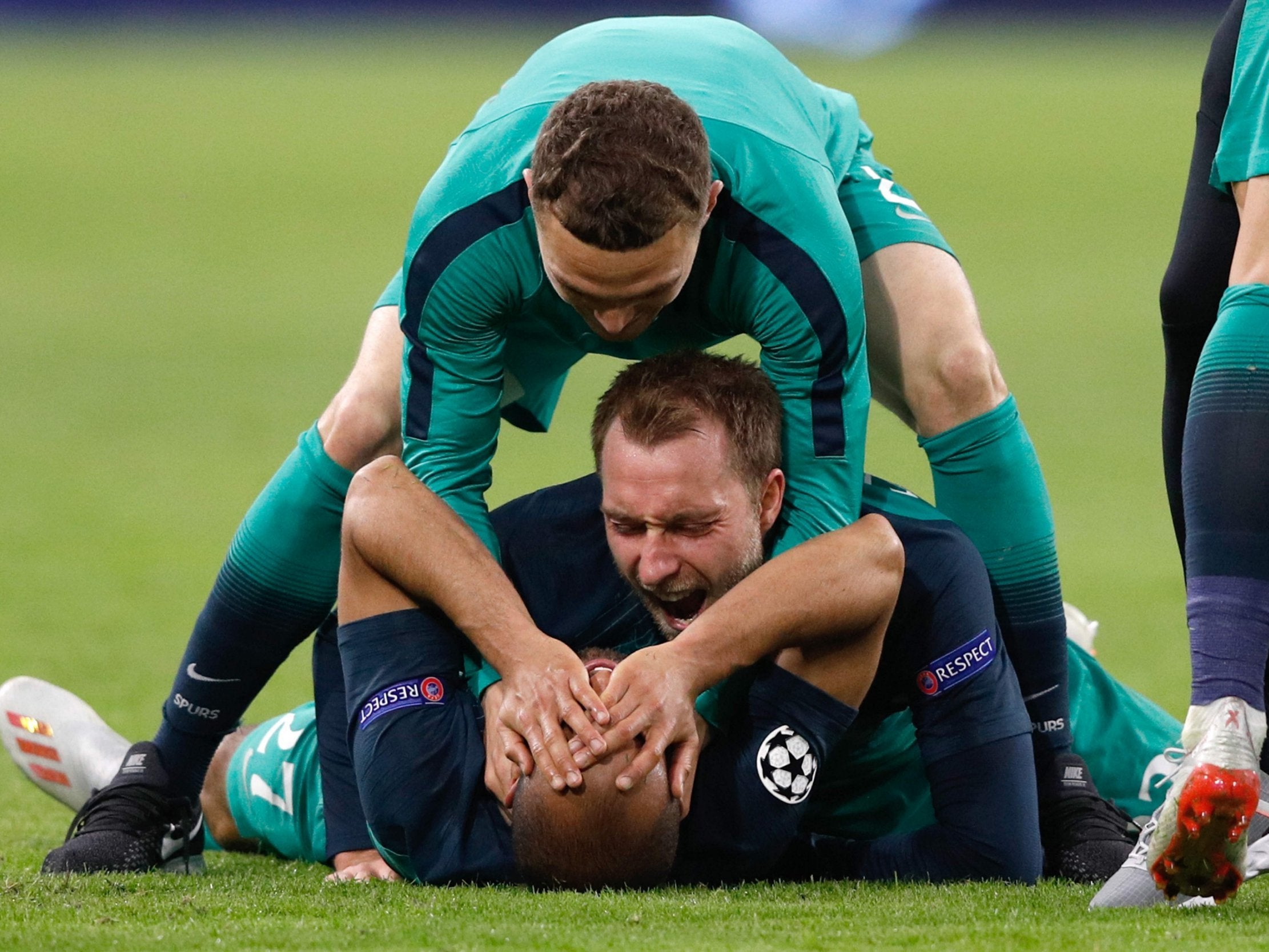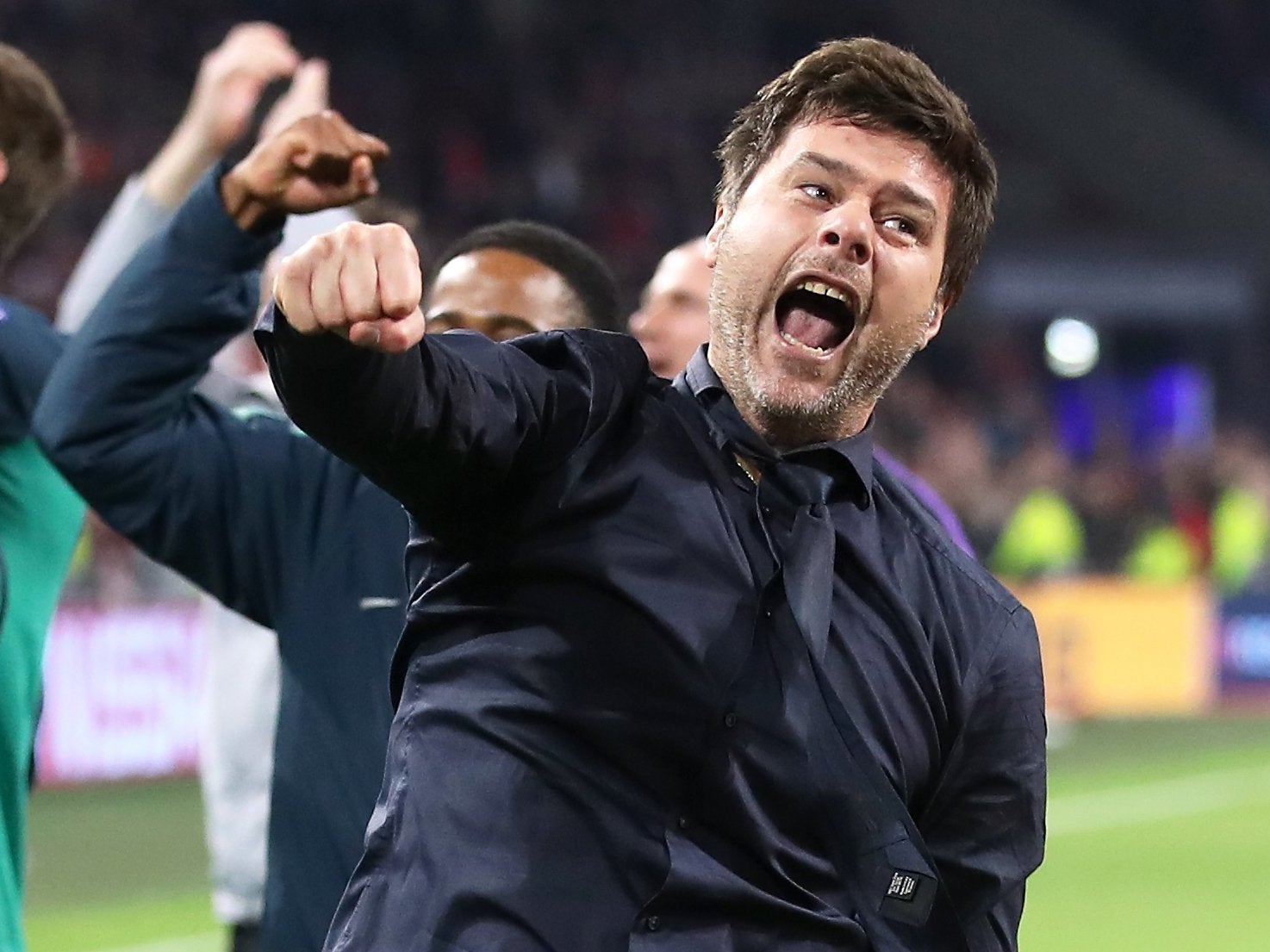Tottenham’s inexplicable and unlikely path to the final shatters what we know about the Champions League
Tottenham are arguably the worst side on paper to reach a Champions League final in recent memory when it comes to success, which is why this triumph against the odds has been so exciting to watch

Not everything in football has an explanation. Not when Tottenham Hotspur, allegedly mentally weak, without their best player, without a functioning midfield, without a signing in the last two transfer windows, without a stadium until April, without any successful experience in the Champions League group stage, in relegation form in the Premier League, having barely played well in months, having drained themselves physically and mentally, having given every last drop on the pitch, could still find a way to get past Borussia Dortmund and Manchester City and Ajax, each one more dramatic than the last, and end up in the final of the Champions League.
Football journalism has always been built on post facto story-telling. Start with the outcome, skip past the little details, and work backwards until you have reverse-engineered a satisfyingly complete explanation, the ‘big why’ of the result. As if the full-time score was always inevitable from the kick-off.
But this does not work so well in the Champions League, the competition where randomness still reigns. And is certainly does not explain the stunning run of Tottenham Hotspur.
Because this is the most surprising and most unlikely run to the final in a generation.
We like to think of the Champions League as meritocratic, even though we know it is not. It gives us satisfying finals – Real Madrid against Liverpool or Juventus or Atletico Madrid – that feel like the two best teams in Europe, or near enough. But it is a knock-out competition with a distorting away goals rule, and accidents happen. Just look at the last five years in the life of Pep Guardiola. His Bayern team had a strong claim to be the best in Europe but could not reach a Champions League final. His Manchester City team is even better and they cannot even make the semis.
Tottenham’s run to the final has been proof of the pervasive randomness of this competition. Rank the best four teams in Europe and Spurs would not be there. Rank the top eight and you would have to argue hard for their inclusion.
Relative to the competition, they are the weakest team to reach a Champions League final in years. Chelsea in 2012 were in transition, on the pitch and off, but they had won the double two years before and still had most of that team. Liverpool in 2007 are a stronger case – the team of Jermaine Pennant and Boudewijn Zenden – but even they had won the Champions League two years before that. Spurs have no pedigree in this competition and have been treading new ground for weeks.
That underdog status has been borne out in the way they have scrapped and scraped their way through to the final. The whole campaign has been a triumph of against-the-odds unlikeliness, contingency and chance. Which is why it has been so exciting, so unusual and so resistant to trite explanations.
Just look back through the little moments that have bounced Spurs’ way over the course of this campaign. Harry Kane’s late show against PSV Eindhoven at Wembley in November, his last-minute deflected winner just keeping Spurs alive. Or Christian Eriksen’s late winner against Inter three weeks later. Or Lucas Moura’s equaliser with five minutes left on the clock in the Nou Camp. That was five months ago and at the time it felt more like the end of the story than the start.

Even the knock-out rounds has been one long string of unlikelihoods, close calls and decisive details turning on one bounce or kick. Like Sergio Aguero not scoring that penalty at White Hart Lane. Or Aymeric Laporte losing his head at the Etihad, twice. Or the intervention of Fernando Llorente’s hip, and the VAR clearing it, or Aguero stepping offside in added time, and the VAR spotting it.
Ajax was a similar story. David Neres hit the post in the last minute of the first leg when he could have pulled his team away from Spurs. Last night it was Hakim Ziyech’s turn to hit the post with the tie level and 12 minutes left. And in the end it was a long ball to Fernando Llorente, a slip from Daley Blind and a flick from Dele Alli that set up Lucas Moura, a chain of little details that sent Spurs through.
But then this is the true power of the story of this run. This was not the culmination of any great plan or long-term strategy. Manchester City and Paris Saint-Germain have spent billions to win this competition and have reached just one semi-final between them under their current owners. Spurs are making it up as they go along and have wound up in the final.

This has not been a story of inevitability, it has been the story of contingency, which is its opposite. It has been a run to remind you where the real thrill of football lies, and why this knock-out format is the best channel for it. Because you can feel the randomness. The chaos. The accidents. The luck. The bouncy unplannability of knock-out football, which has bounced Tottenham all the way through to the final.
Pochettino is not a religious man but he has a faith, in what he calls energia universal. A life force that he is able to channel, to help him to dream big and then to make those dreams real. That is what he puts his many successes in his career down to. And as he charged around the pitch last night, crying and screaming, in the moment of his greatest triumph, surrounded by his ecstatic disciples, it felt like the only valid explanation around.
Join our commenting forum
Join thought-provoking conversations, follow other Independent readers and see their replies
Comments